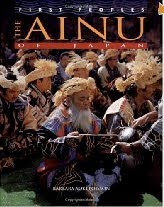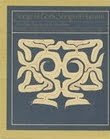
This is the introduction I wrote to give context to the two Ainu folktales that were published in the September 2007 issue of World Literature Today (see previous blog). The focus here is on Chiri Yukie, a remarkable young Ainu woman who played a key role in the preservation of the Ainu oral tradition:
"The Ainu are a people indigenous to the island of Hokkaido, Japan, though they were once spread across northern Japan, the Kurile Islands and Sakhalin. The spoken language, at least as a means of daily communication, was said to have died out by the latter half of the 20th century, to be remembered by only a handful of very elderly Ainu. But increasing worldwide attention to the rights and dignity of indigenous peoples has recently resulted in renewed and better-funded efforts to revitalize Ainu language and culture.
The Ainu language does not have a writing system, but its oral tradition is rich and varied. The two Ainu tales included here were first transcribed from the oral tradition by Chiri Yukie (1903-22), a linguistically gifted Ainu girl who was born and raised in a time when the Ainu were scorned as an inferior people by mainstream Japanese society and authorities. But a timely encounter with the Japanese linguist Kindaichi Kyousuke (1882-1971) transformed Yukie into a forerunner of a movement to reclaim Ainu ethnic pride. And when she died of heart failure at the tender age of nineteen, she left behind an anthology of fourteen animal yukar (chanted epic tales) published posthumously as the “Ainu Shin’youshuu” (Collected tales of the Ainu gods).
“The Fox’s Song” is a retelling of the Ainu tale “Towa towa to: A Song Sung by the Fox,” and “The Swamp Mussel God’s Song” is a retelling of “Tonupeka ranran: A Song Sung by the Swamp Mussel God.” The preface she wrote for the anthology is quoted in part below. These words moved the hearts of many who read them, both Japanese and Ainu, and they continue to speak to readers of all nations and languages today.
Long ago, this vast land of Hokkaido was the free home of our ancestors... But that peaceful sanctuary is now a thing of the past... Before we realized it was happening, Nature... had become faded, and the people, who had once lived so joyfully in the meadows and the mountains, are nowhere to be found. The few of our people who remain are helpless to do anything but watch in astonishment as the world continues to push ahead. Even worse, our eyes have lost the sparkle of the once beautiful spirit our people had in ancient times, when every aspect of our lives was imbued with religious perception. How shameful we appear--filled with unease and discontent, our sense of direction dulled, dependent on the pity of strangers. We are a perishing people--that is what they call us now. What a sorrowful name we have to bear! But... what of the many words and well-used phrases our beloved ancestors used daily to relay their thoughts to one another, the many beautiful expressions they passed from generation to generation--are they doomed to disappear along with our dying people? That would be too tragic to bear! Having been born an Ainu, and raised hearing and speaking the Ainu tongue, I have set down in my awkward hand, a few short tales from among the great many with which our ancestors entertained themselves when they gathered on rainy or snowy nights, or any time they could find a spare minute. If the many people who know of us could read this collection, it would bring me, along with my ancestors, boundless delight and supreme joy."










